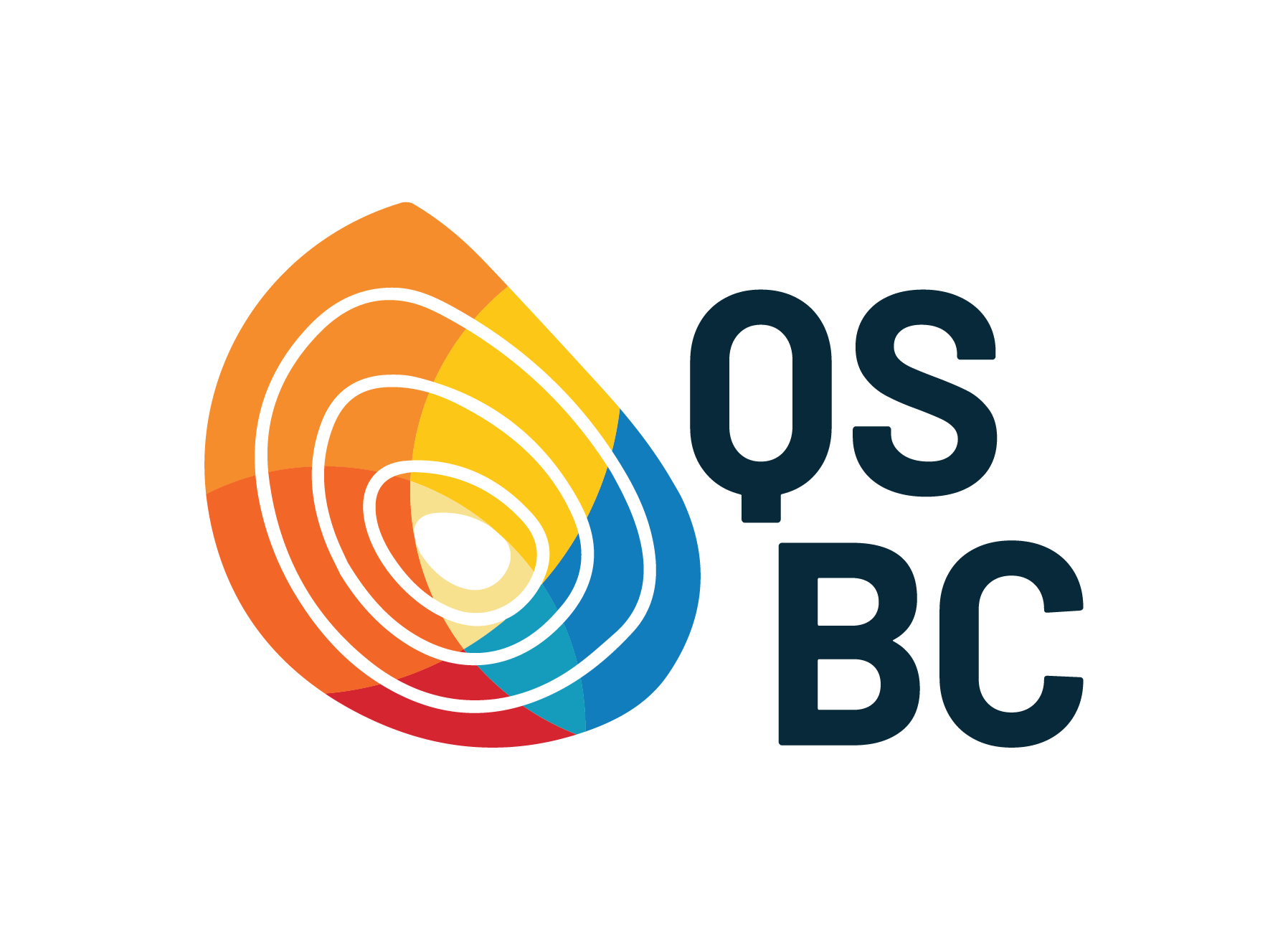Preparing for a QSBC Mediation
Tips to get the most out of your session
By engaging a mediator, you and the other party are making a genuine effort to reduce the anxiety, stress and expense involved in resolving a dispute – and achieve a better outcome.
There are five advantages of using a mediator:
-
Speed
Using a mediator is usually much faster than going to court or a tribunal. -
Cost
Mediation helps avoid the expense of courts, and parties represent themselves so there is no requirement for a lawyer to prepare or attend. -
Flexibility
Mediation gives you more control over how the dispute is handled and resolved. You don’t have to prove who is right or wrong but can focus on agreeing about how to move on. -
Confidentiality
Mediation remains private and is not open to the public, which is not always the case in court hearings. -
Satisfaction
Mediation is less formal, and you can ask questions about the process. You can’t be ‘in contempt’ and if you follow the mediators’ instructions and the mediation terms it is almost impossible to do the wrong thing procedurally and face unintended consequences like fines. Mediation is a less aggressive and adversarial way to resolve disputes.
As you prepare to get the most out of mediation the first question to ask yourself is –
“Am I able to make decisions and sign the agreement if one is reached at mediation?”
If the answer is no, there is every chance the outcome could be derailed by someone who is asked to sign the agreement but hasn’t been in the mediation, won’t understand how that agreement was reached and how it considers what matters the most to both parties.
Not having the decision maker in the mediation can waste all the time and effort both parties have put into their negotiations. If the answer is no, contact the QSBC immediately and arrange for the right person to attend.
Preparing to reach a solution
Consider what matters to you in resolving this and what doesn’t.
- Are you trying to minimise costs?
- Obtain an apology?
- Be given more time?
- Are you trying to avoid spending any more time on this?
- Sort out an issue so you can go your separate ways?
- Have a continuing business relationship?
Now consider those questions from the other party’s perspective—what do you think is important to them?
Consider what you hope to achieve from the mediation.
- Are you being realistic?
- What will you do if you don’t achieve these things, and is there a ‘next best’ alternative that could help you achieve at least some of what you hoped for?
- If you can’t reach agreement at mediation, do you know the next steps to get the dispute resolved and how much time or energy those steps may involve?
We’ve found that going through this process before the mediation will help you communicate effectively during the session.
Steps to help communication
Prepare a written summary that you can have on hand and refer to, which briefly outlines:
- What you hope to achieve from the mediation,
- The key facts of your dispute,
- Documents, incidents, or calculations that support your position collate supporting documentation that you may need to refer to in the mediation conference, including:
a copy of the lease,
emails between the parties,
financial documents for the business.
- What you hope to achieve from the mediation the key facts of your dispute documents, incidents, or calculations that support your position collate supporting documentation that you may need to refer to in the mediation conference, including:
a copy of the lease
emails between the parties
financial documents for the business

- Be prepared to listen respectfully to the other parties’ perspective and allow for a meaningful negotiation.
- Trust that you’ll get your turn to speak and if you don’t feel you have, tell the mediator during the conference—it is often too late after the mediation ends.
- Understand that the mediator is a professional and has held mediations hundreds or thousands of times before, but this might be your and the other parties’ first mediation, so it is ok to ask questions.
- You can ask to speak to the mediator privately if you want to understand something about the process, have concerns that you’re not getting enough of a chance to speak, or are not sure what comes next.
- Allow enough time (remembering mediation may take between 1 to 4 hours).
If you require the assistance of an interpreter or reasonable adjustment at a mediation, you can inform the mediator before mediation.
Attending mediation
A mediation conference must be attended by the parties themselves (unless the party is a corporation). You may wish to have a support person attend mediation with you; however, you must ask the mediators’ approval for that. By law, each party must conduct their own negotiations.
Mediation conferences arranged by the QSBC are conducted remotely via teleconference or videoconference. It is recommended the parties log onto the teleconference or videoconference 5 minutes prior to the scheduled start, to test the connection and be ready to start on time.
The mediator will ordinarily open proceedings by introducing themselves and providing a detailed outline of the process and what to expect. If you are not sure of something – ask questions.
The mediator will explain the role of each party, and will establish the ground rules for how to behave, when to request breaks, etc. The Commissioner expects both parties to negotiate in good faith and make a genuine attempt to resolve the matter.
It is not unusual for a mediation to be adjourned to give parties time to gather documents or information, seek legal or other advice, or go away and think about the options and how they align to what they hoped to achieve from mediation. Mediation is private and requires your full attention so you can’t see clients or do chores like shopping or answer emails while in mediation.
After mediation
If you successfully reach an agreement, the key terms of the agreement must be recorded in writing. The mediator will require you to sign the agreement, and both parties will be provided with a copy.
Following the mediation, the mediator will give the parties a Notice of Mediation Outcome. The mediator will also provide a copy to the QSBC.
If you are unable to reach an agreement, or one party does not attend mediation, the mediator must refer the matter to QCAT (for a dispute under the Retail Shop Leases Act 1994), or a party may apply to QCAT or a court (for disputes not under the Retail Shop Leases Act 1994).
Parties should seek their own independent legal advice on their further options.
Expectation to act in good faith1
The Small Business Commissioner expects all parties to a small business dispute or retail shop tenancy dispute to act in good faith in all actions associated with the dispute including any attempts to informally resolve the dispute and in the mediation conference.
The obligation to act in good faith is established under common law. Good faith requires the parties to an agreement to act honestly, contribute to the contractual benefits, uphold the agreement, and to act reasonably and with fair consideration of the other party’s interests.
Each party’s obligation to act in good faith cannot be excluded or limited, including by a clause in a contract or other agreement, and may continue even after the agreement has ended. While good faith requires you to consider the rights and interests of the other party, it does not require you to act in the interests of the other party or against your own legitimate commercial interests.
1 This section sets out the Small Business Commissioner’s operational policy in relation to good faith.
Criteria for Mediation
Either party to a leasing dispute can apply to the QSBC for mediation in relation to:
-
retail tenancy disputes (under the RSL Act)
-
small business lease disputes (under the SBC Act)
-
franchise disputes1
1 The Small Business Commissioner’s operational policy in relation to franchise disputes is to refer all franchise disputes to the Australian Small Business and Family Enterprise Ombudsman (ASBFEO) due to the requirements of the national Franchise Code.
Mediators cannot mediate disputes about:
-
the amount of rent or outgoings payable under the lease
-
disputes that are before or have already been decided by a court or arbitration
-
disputes where the amount, value or damages is more than $750,000
The following sections explain how we can help:
About our mediation service
You can apply for mediation if you are the tenant or landlord in dispute about a small business lease under the SBC Act, or retail shop lease under the RSL Act.
Participating in mediation is optional and anything said in the mediation conference cannot be used as evidence in a tribunal or court.
The QSBC will nominate a mediator from the QSBC Mediator Panel. All mediators are experienced and accredited under the National Mediator Accreditation System (NMAS).
If you participate in mediation, you agree to the Small Business Commissioner’s Mediation Policy and to comply with any relevant legal obligations.
Mediation conference
All mediations are conducted in accordance with the National Mediator Accreditation System (NMAS) practice standards.
The mediation conference will be held in private via video or telephone conferencing and is confidential.
The mediator will help the parties to explore the issues, discuss options, and, if possible, reach a settlement agreement. The mediator will conduct an intake with each party, may ask the parties to share information, may meet with the parties together or separately, and may communicate verbally or in writing.
During the mediation, each party must conduct their own case; however, the mediator may allow a representative to speak on behalf of a party if they are a company or if the mediator agrees it is appropriate. Additional parties may be added if all the parties agree and the additional party pays their share of the mediation fee.
If the parties reach an agreement during mediation, the mediator will write down the agreement (called the mediation agreement), and both parties must sign it.
If either party does not follow the agreement, the other party can ask a tribunal or court to enforce it.
If through this process, a mediation agreement cannot be reached, each party may seek their own independent legal or financial advice about other options.
For mediations under the RSL Act, if the parties cannot reach an agreement the mediator must refer eligible matters to QCAT.
Mediation fee1
The mediation fee of $371.00 is set in the Small Business Commissioner Regulation 2022 and Retail Shop Leases Regulation 2016 and is shared equally by the parties to the dispute ($185.50 per party). The fee payable is GST exempt.
Our fees and charges increase on 1 July each year.
Details on how to make the payment will be provided to both parties after the application for mediation is submitted.
Fee waiver for financial hardship
The commissioner may waive all or part of the fee payable by a party if the commissioner is satisfied the payment of the fee would cause, or would be likely to cause, the party financial hardship. To apply for a waiver based on financial hardship, the party must meet the below eligibility criteria:
- Be currently receiving support from the Small Business Financial Counselling Service and request (and have) the counsellor email the QSBC case manager directly stating that you are receiving financial counselling and that the payment of the fee would cause, or would be likely to cause, financial hardship.
OR
- Have an independent certified practising accountant or certified bookkeeper provide a signed letter (including their full name, contact information and certification) stating that they have no conflict of interest, are aware of your current financial position and that the payment of the fee would cause, or would be likely to cause, financial hardship.
The email or signed letter must be received by the QSBC case manager assisting with your dispute before the due date for your share of the mediation fee.
If your application is properly made, the commissioner or authorised officer will then consider your fee waiver request against the above eligibility criteria. A decision will be made within 2 business days of your submission, and you will be advised of the outcome by email.
Fee waiver for a class of parties
The commissioner may also waive all or part of the fee payable for a class of parties for a particular period if the commissioner is satisfied the waiver will promote access to mediation by the parties during the period.
If the commissioner is satisfied that an unforeseeable business disruption has occurred which is reasonably preventing either of the parties from fulfilling their obligations under a small business lease or retail shop lease, the commissioner may publish a waiver of all or part of the mediation fee on the QSBC website.
The waiver will state the class of parties to which it applies and the period for which the waiver exists. The waiver will be automatically applied to relevant parties; however, the parties will be asked to confirm by email that they wish to apply for and participate in a mediation conference.
1 This is the Small Business Commissioner’s operational policy in relation to mediation fees.
Criteria for retail tenancy disputes
Retail tenancy disputes are mediated under the Retail Shop Leases Act 1994 (RSL Act). A retail shop lease under the RSL Act has specific definitions, some of which include:
- a premises is used for retail purposes
- a shop type mentioned in the RSL Regulation
- a shop located within a retail shopping centre (where 5 or more retail shops are located)
- a shop with a floorspace of less than 1,000 square metres.
You should seek independent legal advice if you are not sure if your lease is a retail shop lease.
After mediation, the mediator will notify us and must refer the dispute to the Queensland Civil and Administrative Tribunal (QCAT) if:
- no agreement can be reached in writing at mediation, or
- a party does not attend mediation, or
- the dispute has been with the mediator for four months,
and
- the lease is current (or has not expired, been surrendered, or terminated more than a year ago), and
- the dispute is within QCAT’s jurisdiction.
Criteria for a small business lease disputes
The Small Business Commissioner Act 2022 (SBC Act) applies to small business lease disputes (other than retail tenancy disputes) and franchise disputes.
To be eligible for mediation, one party to the dispute must identify as a small business* and both parties to a small business lease dispute must:
- have already attempted to find an informal resolution to the matter first, and
- agree to mediate the dispute, and
- agree to share the cost of mediation equally.
If no agreement can be reached at mediation, the parties may need to seek your own independent legal or financial advice about their further options.
*Small business means a Queensland business that identifies as small in size and which a person would reasonably consider to be small.
When to go to the QSBC and when to go to QCAT
For retail tenancy disputes, the parties must attempt mediation with the QSBC before making an application to QCAT. If you apply to QCAT for a retail tenancy dispute you will need to provide evidence of your attempt to mediate the matter through the QSBC. If you attempt mediation with QSBC and the matter remains unresolved, the mediator will refer the matter to QCAT for you.
QCAT can hear matters and give directions to the parties (for matters up to $750,000); however, only a court with relevant jurisdiction can make orders about a matter or hear other matters.
For small business lease and franchise disputes, the parties must attempt to informally resolve the matter with the QSBC. The mediator is not required to refer these types of matters to QCAT. QCAT does not have the power to hear commercial leasing disputes. If you bring a commercial leasing dispute to QCAT, it may be dismissed.
You should seek your own independent legal advice about your individual circumstances and the options available to you.




